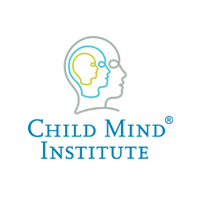Welcome to our special section, Thrive on Campus, devoted to covering the urgent issue of mental health among college and university students from all angles. If you are a college student, we invite you to apply to be an Editor-at-Large, or to simply contribute (please tag your pieces ThriveOnCampus). We welcome faculty, clinicians, and graduates to contribute as well. Read more here.
By Mary Rooney, PhD
College is an exciting time! You’re surrounded by new friends and new opportunities, and have more independence than ever before. However, college life also presents unique challenges to a student with ADHD. Managing classes, a social life, and extra curricular activities without day-to-day support from parents and a structured school schedule isn’t easy. But there are plenty of things you can do to set yourself up for success. These top ten tips are a great place to start.
1. Go to class. Attendance counts even when teachers aren’t hovering over you. Skipping classes not only leads lower grades, but it also makes professors less motivated to help when you need it. So, resist the temptation to skip class, even if you think the class is too easy (or boring). You increase your chances of success just by showing up.
2. Be realistic. Don’t sign up for an 8am class if you’re not a morning person. Set yourself up for success by scheduling your classes at times of the day when you find it easiest to pay attention, and when you think you can get there on time. Many students with ADHD struggle with waking up in the morning. If this applies to you, then don’t sign up for those 8am classes—even when one sounds like it will be “the best class ever!” It doesn’t matter how great the class is if you are never there to participate.
3. Work first, play later. College campuses are filled with temptations that can distract from getting work done, and college students with ADHD often have to work especially hard to get results. Schedule specific study periods in a quiet location, and stick to the plan. Reward yourself with fun, social activities. But train yourself to work first and play later. This will help minimize procrastination, and allow you to enjoy your social time without feeling anxious about falling behind in your classes.
4. Be proactive: Get support early, before a crisis develops. All campuseshave resources available for students with ADHD to help you succeed. Contact Learning Support Services before you arrive on campus to find out what ADHD diagnosis documentation they require, and which services they offer. If you find during the semester that you’re struggling to pass your classes, contact Learning Support Services and your professors as early as possible for learning disability help. Once the semester is coming to a close, there’s very little anyone can do to help. But early on there’s a lot that can be done to help you get back on track.
5. Use a calendar. Keeping track of class times, assignments, tests, and social activities isn’t easy and doesn’t happen automatically. Students with ADHD often have difficulty planning and remembering when assignments are due and tests are scheduled. Avoid missing important dates and deadlines by using a calendar. Every course syllabus will list class dates and times, assignment due dates, and test dates. Add these events to your calendar as soon as you receive a new syllabus. An electronic calendar can be configured to send you email or pop-up reminders a few days and hours before assignments and tests are due.
6. Think before you drink. It’s no secret that alcohol use is widespread on many college campuses. While excessive drinking isn’t healthy for anyone, research shows that students with ADHD experience more negative consequences as a result of their drinking than students without ADHD. The best choice is to avoid alcohol altogether. Stay away from situations that encourage heavy drinking, and choose not to join a fraternity or sorority that has alcohol use embedded in its culture. If you decide to drink and find that your alcohol use is causing your relationships, grades, or health to suffer, reach out for help by contacting the campus student health center.
7. Join a club. With so many students on campus, it can be hard to find your niche. Join a club to help you meet people who like some of the same things you do. Before long you’ll have made some great friends and have a busy social calendar filled with fun activities—most of which won’t involve alcohol.
8. Sleep! Find a sleep schedule that works for you and stick with it. Everyone needs sleep, but it may be even more important for students with ADHD. Lack of sleep makes it more difficult to pay attention and can also lead you to make impulsive decisions that you’ll regret later. Aim for 8 hours of sleep and a consistent schedule, even if this means sleeping from 2am – 10am every morning.
9. Use your ADHD medication as prescribed. Continue to take your ADHD medication as prescribed by your doctor. Avoid skipping doses, and resist the temptation to misuse your medication in order to cram before a test or pull an all-nighter. Not only is it unsafe to use your medication in any way other than as prescribed, it will also disrupt your sleep schedule and make it harder to concentrate in the long run. If your current medication doesn’t seem to fit your needs as a college student, talk to your doctor as soon as possible.
10. Call, text, or email your parents. You may be living at college and well on your way to adulthood, but your parents can still be a great source of support. Being surrounded by new people and new expectations can be disorienting at times. A conversation with your parents about how you’re really doing can help you stay grounded. Everyone needs moral support, and you’re never too old to benefit from the unconditional love that parents provide. So check in with your parents regularly, and if you need help, ask for it.
Originally published on Child Mind Institute.
Follow us here and subscribe here for all the latest news on how you can keep Thriving.
Stay up to date or catch-up on all our podcasts with Arianna Huffington here.


